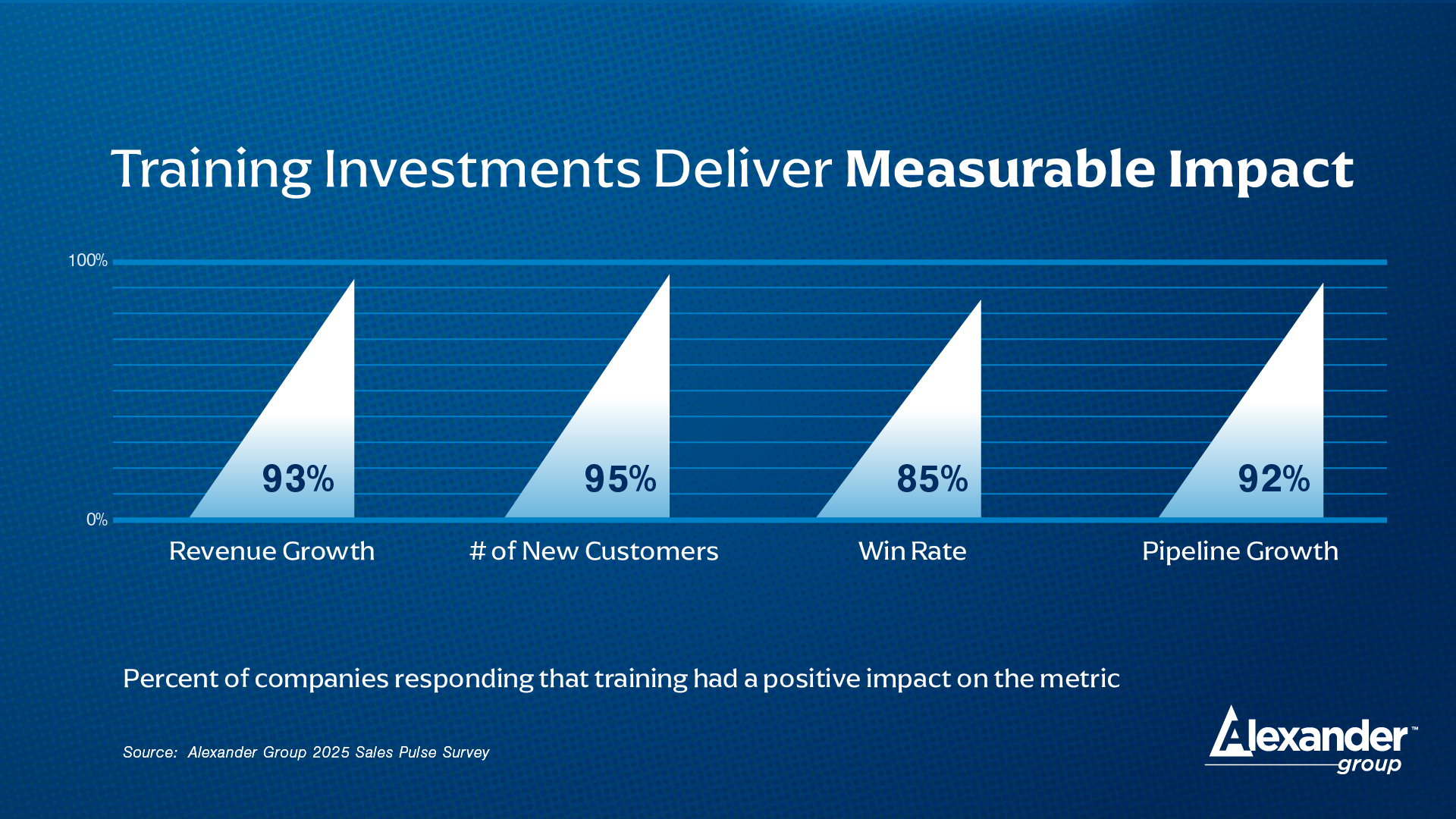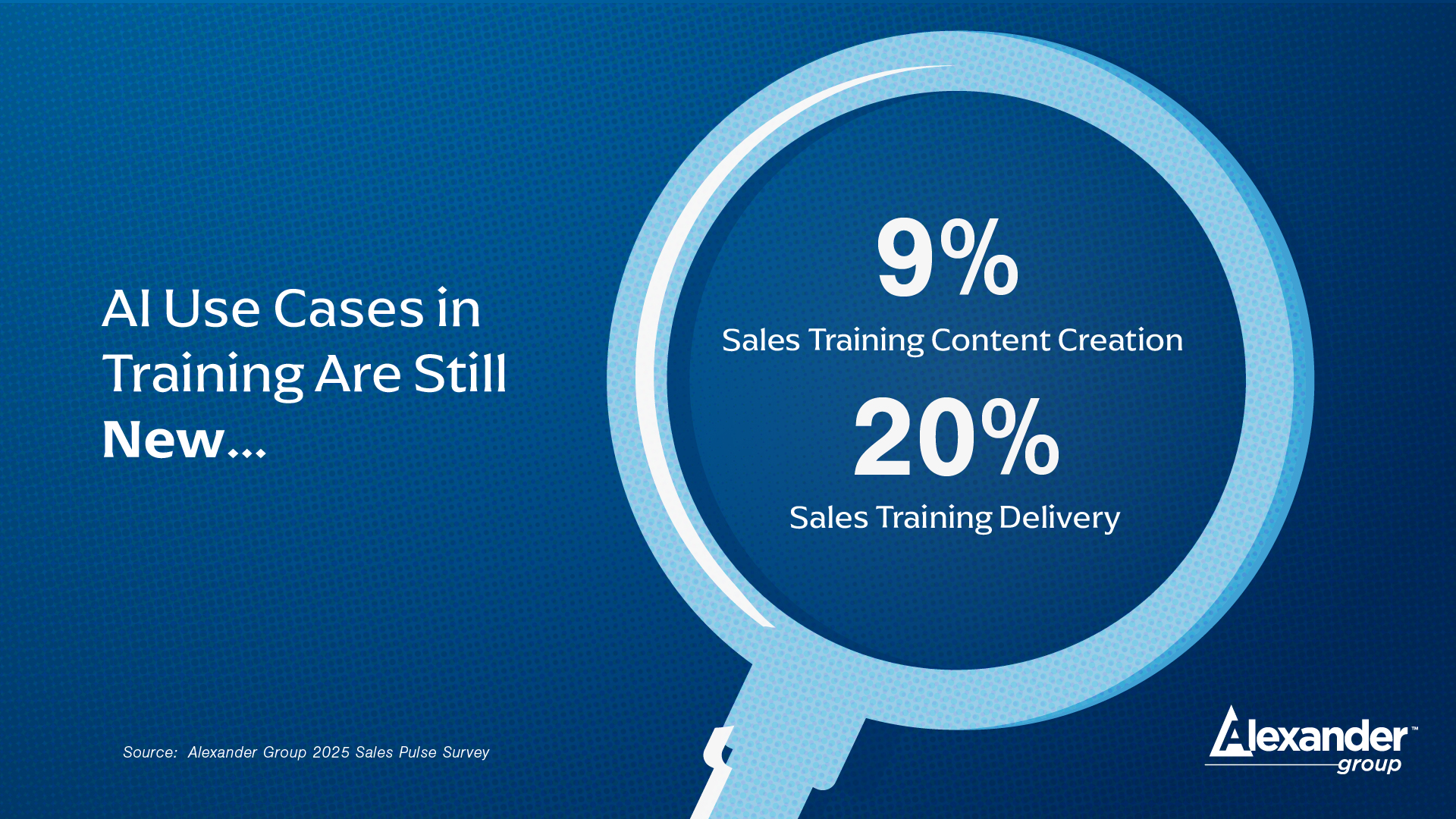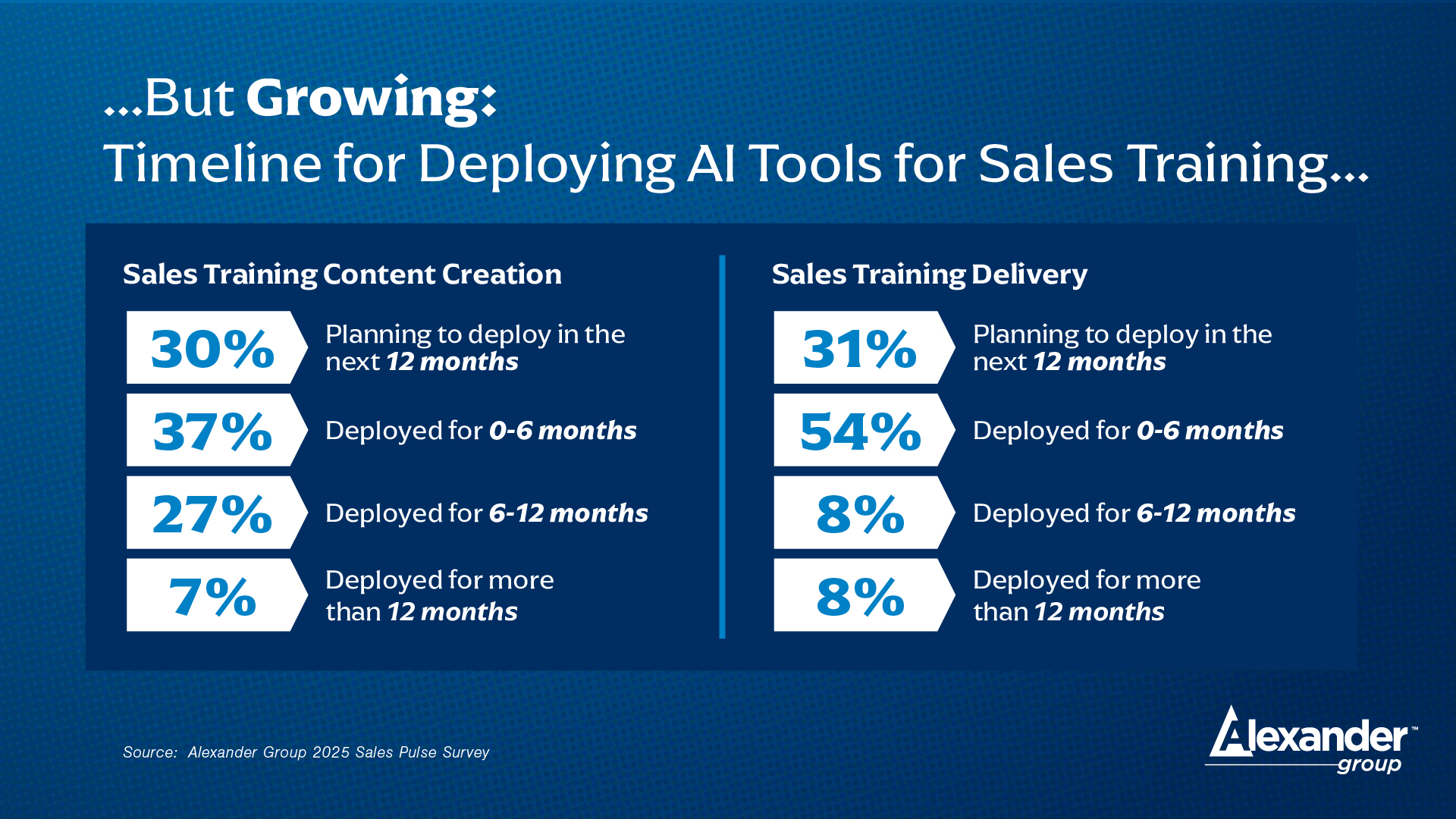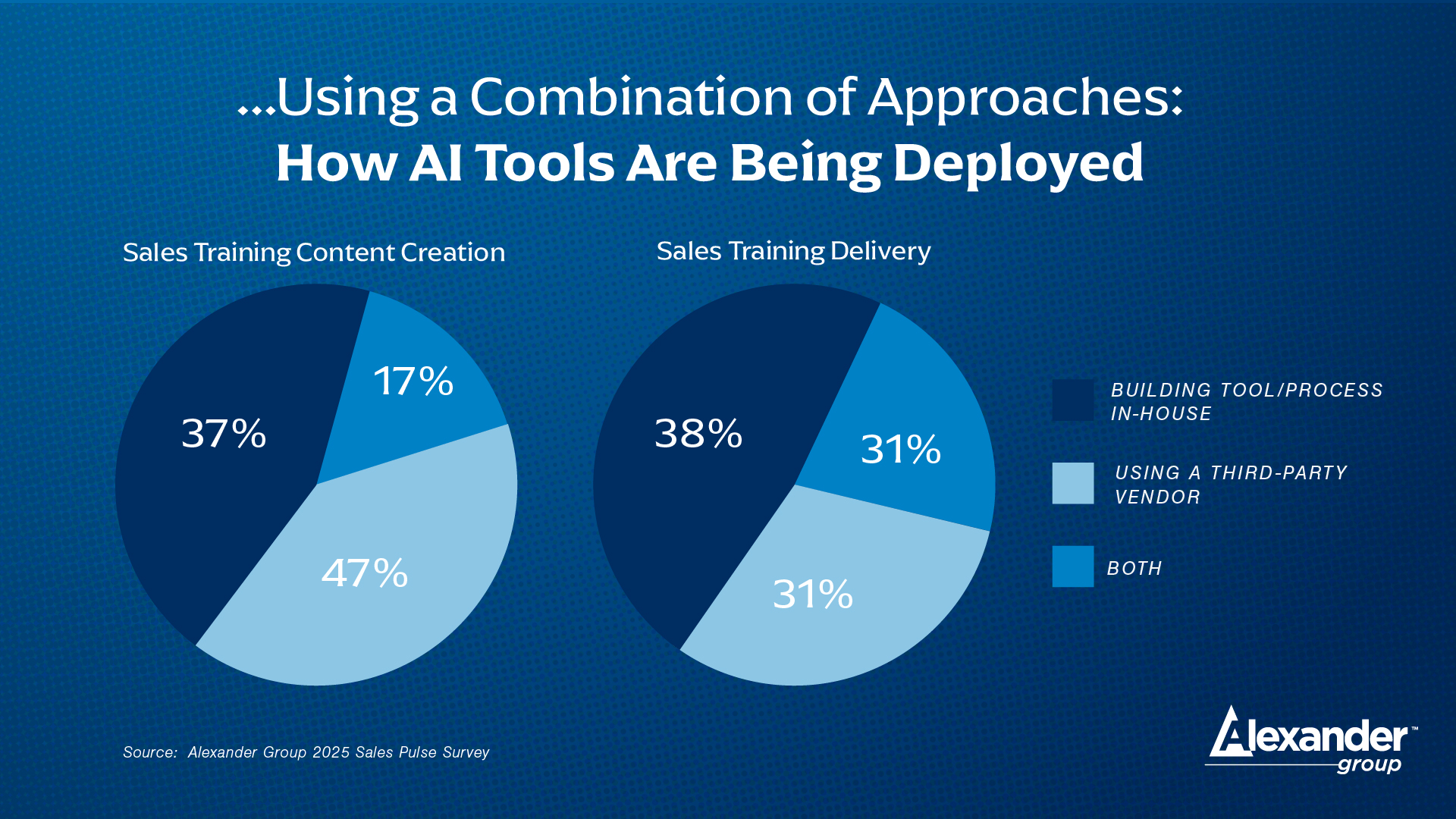2025 Sales Pulse Survey
How Companies are Evaluating Training Initiatives and Investments in the Year Ahead
Earlier this year Alexander Group’s 2025 Sales Pulse survey found that following a year in which revenue growth closely aligned with sales targets, companies were confident that revenue growth in 2025 would follow this same trend. 78% of respondents shared an optimistic outlook for the year. Particular emphasis was being placed on market expansion and customer growth, product innovation and revenue, and pricing optimization to achieve these desired growth goals.
Many of those same companies are likely rethinking their priorities for the remainder of the year. But one thing that will remain constant is the importance of a high performing sales team. At the time of the survey the respondents were looking to significantly invest in sales training, enablement and artificial intelligence (AI). Anecdotally, they’re still looking to improve the skills and capabilities of their commercial teams. Whether they shift how to meet those objectives is an open question.
Where are Companies Focusing Investments?
Sales Pulse Survey respondents were looking to increase their overall budgets by 6% year-over-year, including increases in sales enablement, AI and analytics, and customer experience. A significant number of companies (41%) planned to increase investments in sales enablement and training headcount. The reason? A majority of sales leaders report that sales training investment positively impacts pipeline growth (92%), new customer acquisition (94%), revenue growth (94%) and win rates (85%), helping organizations reach their revenue goals.

AI and advanced analytics were ranked as the second investment priority in the Sales Pulse Survey. In most organizations, the Marketing function is usually the most advanced in terms of AI implementation, with Sales and Customer Success trailing slightly behind. When it comes to sales training, the use of AI is small, but growing, with only 20% of companies using AI for sales training content creation and 9% for sales training delivery.
The Future of AI for Sales Training
The trend towards investing in AI for sales training is clear when looking at the companies who have identified uses for these tools. Of the 20% of companies that have defined AI use cases for sales training content creation, only 7% have had AI deployed for more than a year. The majority (63%) have deployed AI for less than one year and 30% plan to deploy in the next 12 months. The figures are similar for sales training delivery. Of the 9% of companies with AI use cases for sales training delivery, only 8% have been leveraging this technology for more than a year. Sixty one percent (61%) of deployments are less than a year old and 31% of deployments are planned in to begin within the next 12 months. Given the importance of skills and capabilities development and a likely push for improved efficiency, it would not be surprising for these numbers to increase.
For those companies who have deployed or are in the process of deploying various AI tools for sales training content creation and sales training delivery, they are taking a combination of approaches. Across both use cases, similar numbers of companies are developing their AI tools and processes in-house (37% and 38% respectively). Almost half of companies surveyed leverage third-party vendors for sales training content creation (17%), while just under one-third are doing the same for sales training delivery (31%).

Since this type of investment is still relatively new in many organizations, most respondents report that it is still too early to tell what sort of return on investment these tools and technologies will have. However, for those who have experienced results, the majority agree that the return on investment has been positive, especially regarding sales training content creation, indicating the promise of these technologies to enhance sales training.
Leveraging of AI in Sales Training
When considering the practical applications of AI in sales training it’s easy to understand why so many companies are exploring these new technologies. The deployment of AI enables companies to develop and deliver training materials faster, identify content gaps and inconsistencies in existing material, and implement cohesive styles and terminology across the sales organization. This can be applied to various content formats, from text-based materials to video, personalized learning, simulations and more. 
AI is designed to provide a comprehensive training experience for sales team members that can empower them to be successful and drive the sales organization toward achieving its revenue goals. AI can also be leveraged to analyze the behavior of successful sellers to provide useful guidance to sales teams looking to increase performance. The diversity of potential use cases of AI makes it a valuable tool for sales training, leaving few companies that have no plans of implementing the technology in the near future.
Final Thoughts from the 2025 Sales Pulse Survey
It’s evident that sales organizations were increasingly focused on initiatives that will support revenue growth. They were prioritizing investments into sales enablement and training with AI tools designed to streamline and improve sales training content creation and delivery. What hasn’t changed is the importance of a high-performing commercial organization. It remains to be seen whether companies stay with their initial plans or adjust them as they look ahead into 2025.

Need more information?
To learn more about how Alexander Group helps revenue leaders achieve results through strategic growth plays, contact one of our experts today.





